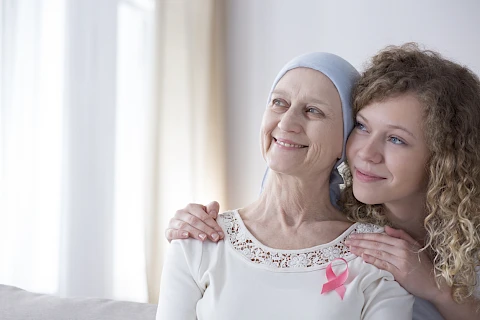
Receiving a breast cancer diagnosis can be an emotionally overwhelming experience for anyone. As a family caregiver, your support is crucial during this difficult time. Not only can physical support provide a loved one with the backing she needs to rest and recover, but your emotional support can prove essential in managing the aftermath of the diagnosis.
Navigating Emotions After a Breast Cancer Diagnosis
Learning about a breast cancer diagnosis can evoke a range of emotions for your senior loved one. They might feel shock, fear, sadness, or even anger. It's essential to be aware that everyone processes this information differently.
The initial step after receiving the diagnosis is to gather as much information as possible. Make sure to attend doctor's appointments with your loved one if they feel comfortable having you there. This helps ensure that all necessary questions are asked and answered. Clear communication with healthcare providers is vital. Understanding the type, stage, and treatment options for the breast cancer diagnosis will help you both feel more in control.
Responding to the News
Emotional support is essential when responding to the diagnosis. Offer your loved one reassurance and let them know that it's okay to feel whatever they are feeling. Encourage open and honest conversations about their fears, concerns, and hopes.
It's also important to respect their feelings and decisions. Some seniors may prefer to be very involved in their treatment decisions, while others may want to rely heavily on their family or doctors. Your role is to support their choices and be there for them during this challenging time.
Implications of a Breast Cancer Diagnosis
Breast cancer treatment includes several options, such as surgery, radiation, chemotherapy, or hormone therapy. Each of these treatments comes with potential side effects. These might include fatigue, nausea, pain, or changes in physical appearance. Being prepared to manage these side effects can make the experience easier for your loved one.
The impact on daily life and routines can also be significant. They may need to take time off from regular activities, attend frequent medical appointments, and adjust their lifestyle to accommodate treatments. As a caregiver, your role includes helping them navigate these changes.
Planning for Care
Coordinating medical appointments and treatments can be a complex task. Create a schedule to keep track of appointments, medications, and any special instructions from healthcare providers. This keeps everything organized and ensures nothing is missed.
A strong support network is essential. Reach out to other family members, friends, or community resources for help. Sometimes, considering professional in-home care services might be a beneficial option. Companies like Senior Helpers Fairfield offer specialized services to help manage the daily needs of seniors during their cancer treatment journey.
Practical Tips for Caregivers
Try some of these tips to provide a high standard of care for a loved one dealing with breast cancer.
- Managing medications and treatment schedules can be demanding. Use pill organizers, set reminders, and keep a detailed log of all medications and dosages.
- Providing nutritional support is crucial. Cancer treatments can affect appetite and nutritional needs. Consult with a dietitian to create a balanced meal plan that supports your loved one's health.
- Engaging in physical activity, as advised by their healthcare provider, can enhance strength and boost mood. Simple exercises, such as taking short walks, can be very helpful.
- Ensuring mental and emotional well-being cannot be overstated. Spend quality time together, engage in their favorite activities, and encourage them to join support groups.
Remember, taking care of yourself during a difficult time is also essential. Prioritize self-care, and arrange for respite care if needed.
Provide Care for Seniors with Breast Cancer at Home
Supporting a senior after a breast cancer diagnosis involves understanding their emotional and physical needs, responding with empathy, and carefully planning their care. Remember, you don't have to do it alone. Seek support from family, friends, and professional services.
For caregivers in Fairfield, Shelton, Trumbull, Milford, Stratford, and surrounding areas in Fairfield County and New Haven County, Senior Helpers Fairfield is here to provide in-home care and assistance that can offer more support for seniors. Contact us today to learn more about our professional caregiving services and how we can help you support your loved one during this challenging time.